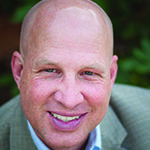 “Luck” is a concept laden with philosophical freight. Things that happen to us through circumstances not of our making might be attributed to supernatural forces (i.e. “fortune,” from the Roman goddess Fortuna) or through mere randomness (which also implies a world view, i.e. a closed universe). Many ancient religions connected luck to ritual in attempts to control the uncontrollable. Carl Jung thought of it as synchronicity, the meaningful coincidences not of our own agency.
“Luck” is a concept laden with philosophical freight. Things that happen to us through circumstances not of our making might be attributed to supernatural forces (i.e. “fortune,” from the Roman goddess Fortuna) or through mere randomness (which also implies a world view, i.e. a closed universe). Many ancient religions connected luck to ritual in attempts to control the uncontrollable. Carl Jung thought of it as synchronicity, the meaningful coincidences not of our own agency.
Historically, Christian teaching is that belief in luck is irreconcilable with a sound view of the God of the Bible. Isaiah 65:11 thunders woe to “you who forsake the Lord, who set a table for Fortune and fill cups of mixed wine for Destiny.” However, luck has enjoyed (and still enjoys) wide popularity in our culture. Admittedly, Mary and I were careful to wear our lucky clothes in order to secure the UNC men’s basketball team’s sixth national championship. Our legendary announcer, Woody Durham, always implored UNC fans to “go where you go and do what you do” when the Tar Heels most need help. We were only too happy to help.
Generally, U.S. culture remains wildly superstitious, with all sorts of lucky talismans and rituals enfolded into our way of thinking and living. However, the future of luck does not look so good in our country. The reason? North Americans are increasingly likely to attribute success not to luck, but to talent and hard work. Increasingly, we believe that we “make our own luck.”
This, according to Cornell professor Robert Frank, is a real social problem. In his book, Success and Luck: Good Fortune and the Myth of Meritocracy, Frank argues that the personal narratives of successful people tend to attribute their success to their own hard work rather than “factors like luck or being at the right place in the right time.” And this, he says, is a problem in that “seeing ourselves as self-made leads us to be less generous and public-spirited.”
Hindsight leads those who are rich to remember their personal sacrifices, but not to reflect on what it means that they were born in the United States (as opposed to, say, Syria). And when we see our success as the product only of our striving, we tend to become more possessive of what we (alone!) have earned. It is difficult for those of us who are wealthy not to look down our noses at the wretched masses who obviously haven’t worked as hard as we did.
The root of all deadly sin is pride, and in the face of every temptation to attribute my incredible life to all that I have done to earn it, I try to remember the words of Psalm 100: “Know ye that the LORD he is God: it is he that hath made us, and not we ourselves; we are his people, and the sheep of his pasture.” And you don’t have to resort to superstitious belief in luck to capture the sentiment. In countless African-American churches today, when you ask folk how they are doing, their answer is, “Blessed.”
I’d say that has it just about right.
